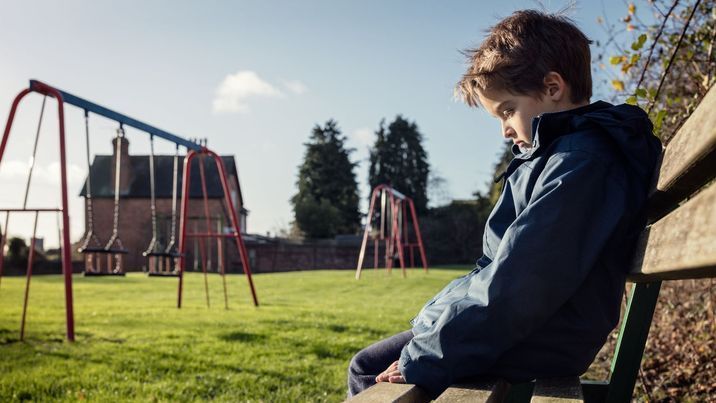Homeschooling Your Gifted / Twice Exceptional Child: An Information Sheet for Parents
Introduction
Sometimes the general schooling context does not meld well with your child’s individual needs, especially if your child is gifted or twice exceptional. Perhaps your child is academically inclined but doesn’t engage in the school learning process and is therefore underachieving. Perhaps your child is a high achiever, but has been forced to make a choice between friendships or achievement. Perhaps your child has been bullied or has difficulty finding peers who understand him/her/them. Perhaps your child is a good candidate for enrichment or acceleration, but the school does not have the resources to provide such options? Do you have concerns about your child’s cognitive development or emotional well-being? Do you worry about your child’s safety in their present school? In every instance, there are provisional, strategic or resource solutions within the school. However, continued communication between parents, teachers, and administrators may have failed to result in your child’s achievement and wellbeing, and underachievement may have ensued. In these cases, homeschooling is one option to consider.
What is Homeschooling?
Homeschooling is when the child’s education is shouldered more by the parents beyond the usual schooling context and is undertaken within the home context. Homeschooling may include fully parent-delivered home education, excursions beyond the home, links with programmes within schools, part-time enrolment in a ‘brick-and-mortar’ school, the use of online learning, special community programmes, tutors, mentors, or other professional support or activities (Cheng & Hamlin, 2021). Homeschooling may also include organised social activities with like-ability peers or interest-based activities with like-minded peers at other local venues or online (Jackson, 2017a). However, homeschooling is atypical, so all homeschooling contexts are different, as families choose different pathways to achieve the best for their children.
What are some types of homeschooling approaches?
The three main types of homeschooling curriculum include: the classical approach that is structured like regular schooling; unschooling that the student self-directs; and the eclectic which is based around family circumstances, available resources, and focusses on the student’s individual interests and needs (Jackson, 2017a; Select Committee on Home Schooling, 2014; Paine, 2018). Other approaches, for example Montessori, are also considered.
Why choose homeschooling for your child?
There are many reasons to choose homeschooling. Any one, or a combination of the following, may be considered when deciding to choose homeschooling for your child:
- unhappiness is evident or they lack motivation in school
- well-being is being eroded with low self-esteem or bullying or peer pressure
- teacher/s do not know how to meet your child’s individual needs
- special learning difficulties or needs are not catered for
- needs or interests are not matched with the school’s curriculum
- gifts or talents are not being nurtured
- underachievement is evident
- feeling strange, as if he/she does not fit, or there is no sense of belonging in the school
- large class size is impacting learning
- parents’ educational goals and values clash with the school’s values or mission.
What are some benefits of homeschooling?
Many parents/guardians choose homeschooling due to the autonomy, flexibility, and freedom in educational organisation and implementation that it provides. Being able to support their individual child’s learning, abilities, interests, gifts, talents, and wellbeing inspires parents to choose homeschooling. The many benefits of homeschooling include:
- Increased time with your child/children
- Provision of a broader, diverse, interest-based, and accelerated curriculum
- Academic benefits with rapid parental support
- Lack of school pressure with a more relaxed learning environment
- Social experiences within the community with a wider range of personnel and peers
- Real world holistic learning linked with interests, abilities, and talents
- Lower teacher-to-child ratio
- Building closer friendships and family relationships
- Being able to teach family-related values
- Autonomous decision-making and implementation.
(Board of Studies, 2014; Conejeros Solar & Smith, 2021a & b; Coulter, 2020; Drabsch, 2013; English, 2015; Jolly & Matthews, 2018; Kula, 2018; Morse & Bell, 2018; Slater et al., 2020).
What implementation processes are needed for homeschooling to be successful?
Many parents start with the traditional school approach to curriculum implementation and progress to a more flexible and eclectic approach once they become more confident with the homeschooling arrangement. Nonetheless, it’s important to develop a schedule and provide routine, structure, and a dedicated learning space for the child. Being able to access relevant resources, programs and personnel is supportive of the implementation process. This can include choosing online courses, hiring tutors, designing relevant excursions, and all learning activities that can provide strategies for a child’s future development. The greater the access to economic and community resources the more opportunities can be provided. Supportive extended family relationships and encouraging educational departmental staff also help with successful implementation (Conejeros-Solar & Smith, 2021b; Coulter, 2020; Kula, 2018).
How will my child’s social development be nurtured in a homeschooling context?
Parents want their children to develop effective socialisation practices and meaningful relationships (Slater et al., 2020). Homeschooled children’s social and emotional growth can be supported by providing positive, constructive, and healthy social interactions with same-age and multi-age peers, like-ability and like-minded peers. Utilising home education networks and resources; accessing volunteer opportunities; and special interest groups will also support a child’s social and emotional growth. (Conejeros Solar & Smith, 2021a; Jackson, 2017a, 2017b; Select Committee on Home Schooling, 2014).
In summary:
- Homeschooling can be an alternative learning option for supporting the academic, social, and emotional progress of gifted or twice-exceptional students.
- Academic, social, and emotional growth can be nurtured in homeschooling contexts.
- Homeschooling can assist with overcoming underachievement.
- Your child’s well-being can be enhanced through homeschooling.
- There are many educational advantages but explore concerns before implementation.
- Research the benefits and difficulties to enable effective decision-making.
- Access economic, material, and personnel resources to support implementation.
- Ensure you have the support needed to achieve your homeschooling goals.
- Explore external regulation requirements from local departments of education.
References and useful website for more detailed research and information
Board of Studies, Teaching, and Educational Standards NSW (BOSTES, NSW). (2014). Inquiry into home schooling. Submission to the NSW Legislative Council. https://www.parliament.nsw.gov.au/lcdocs/submissions/46729/0139%20Board%20of%20Studies,Teaching%20and%20Educational%20Standards%20NSW%20BOSTES%20inclusive%20of%20attachments.pdf
Cheng, A., & Hamlin, D. (2021). Contemporary homeschooling arrangements: An analysis of three waves of nationally representative data. Education Reform Faculty and Graduate Students Publications. https://scholarworks.uark.edu/edrepub/128
Conejeros, L., & Smith, S. R. (2021a). Homeschooling gifted learners: An Australian experience. Australasian Journal of Gifted Education. 30(1), 23–48. 10.21505/ajge.2020.0003
Conejeros-Solar, M. L., & Smith, S. R. (2021b). Homeschooling the gifted: What do we know from the Australian, Chilean, and US context? In S. R. Smith (Ed.), International Handbook of Giftedness and Talent Development in the Asia-Pacific. Springer International Handbooks of Education.
Coulter, E. (2020). Coronavirus turned these families into accidental homeschoolers, and they're not looking back. ABC News Australia. Retrieved from https://www.abc.net.au/news/2020-05-11/coronavirus-education-homeschool-after-pandemic/12228762
Drabsch, T. (2013). Home education in NSW. NSW Parliamentary Research Service,
e-brief 15. Sydney: NSW Parliamentary Research Service. https://www.parliament.nsw.gov.au/researchpapers/Documents/home-education-in-nsw/Home%20schooling%20GG%203.pdf
English. R. (2015). Use your freedom of choice: Reasons for choosing homeschool in Australia. Journal of Unschooling and Alternative Learning, 9(17), 1–18. https://jual.nipissingu.ca/wp-content/uploads/sites/25/2014/06/v91171.pdf
Jackson, G. M. (2017a). Common themes in Australian and New Zealand home education research. In M. Gaither (Ed.), The Wiley Handbook of Home Education (First Edition) (pp. 329–361). John Wiley & Sons, Inc.
Jackson, G. M. (2017b). Summary of Australian research on home education. Australian Home Education Advisory Service. https://home-ed.vic.edu.au/wp-content/uploads/2017/02/SUMMARY-OF-AUSTRALIAN-RESEARCH-ON-HOME-EDUCATION-Feb-2017-1.pdf
Jolly, J. L., & Matthews, M. S. (2018). Homeschooling: An alternative approach for gifted and talented learners? In C., Callahan & H., Hertberg-Davis (Eds.), Fundamentals of gifted education: Considering multiple perspectives (pp. 467–476). Routledge.
Kula, S. (2018). Homeschooling gifted students: Considerations for research and practice. In J. Cannaday (Ed.), Curriculum Development for Gifted Education Programs (pp. 151–171). Pennsylvania, USA: IGI Global. https://doi.org/10.4018/978-1-5225-3041-1.ch007
Morse, M. L., & Bell, S. M. (2018). Homeschooling: A growing school choice option for meeting special educational needs. International Journal of Educational Reform, 27(2), 156–172. https://doi.org/10.1177/105678791802700203
Paine, B. (2018). What is unschooling. The educating parent. http://homeschoolaustralia.com/articles/unschoolingindex.html
Select Committee on Home Schooling (2014). Home schooling in NSW/ [Sydney, N.S.W.]. Parliament. Legislative Council. (Report; no 1).
https://www.parliament.nsw.gov.au/lcdocs/inquiries/2128/141203%20Final%20Report.pdf
Slater, E., Burton, K., & McKillop, D. (2020). Reasons for home educating in Australia: Who and why? Educational Review. https://doi.org/10.1080/00131911.2020.1728232
Resources


New Paragraph
Striving to improve outcomes for gifted learners
Copyright 2021 AAEGT - Privacy Policy









